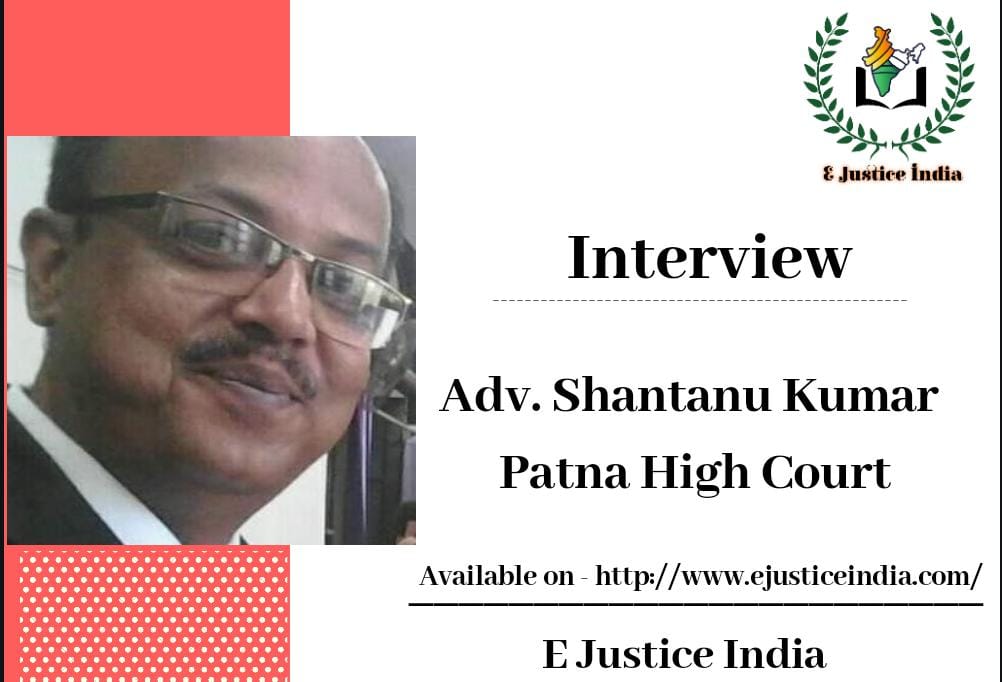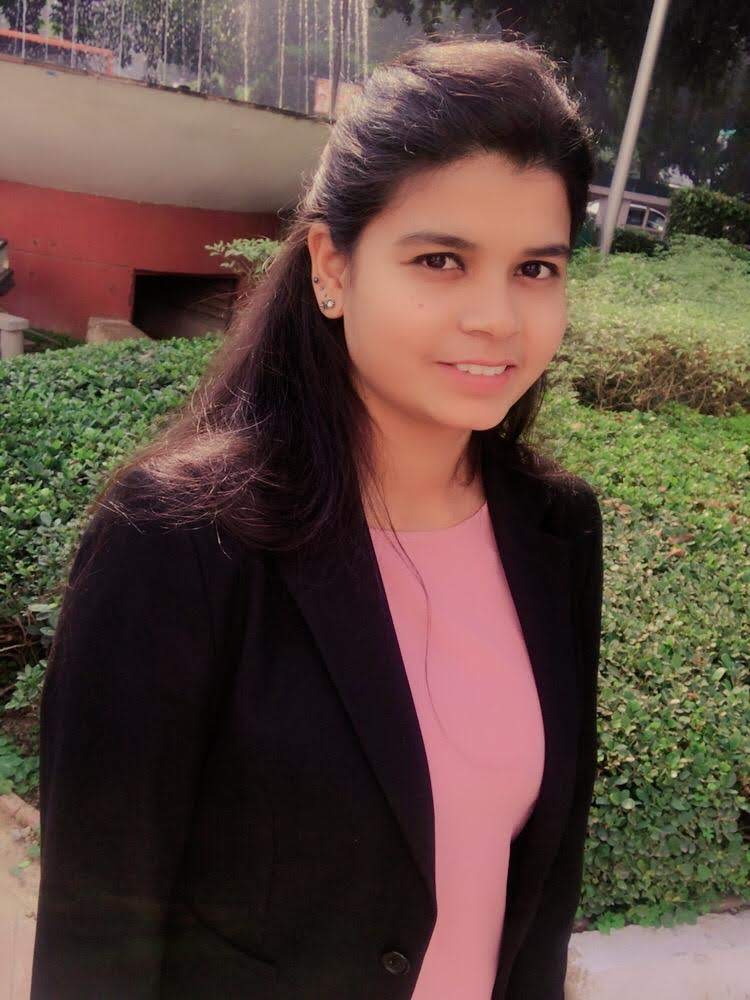Interview with Adv. Aarti Mishra, Advocate on record at Supreme Court of India.
After exchange of pleasantries ,the interviewer on behalf of E-justice India ,began interviewing Ms Aarti Mishra.
- Interviewer: Kindly insight us with a glimpse about your professional background from where you were inspired to choose law and pursue this further?
Interviewee: I am advocate on record at Supreme Court .I am from legal family background my father is lawyer at supreme court.Since childhood I have been brought up in legal environment where basic conversation on tea table was of cases ongoing in courts so these consistent scenarios inspired me to be an advocate.And also I am inclined towards doing a bit of social work so choosing law as a profession was more apt option to do such work.I wanted to help people whose voice aren’t heard so this was the profession that could help me to bring a change that I desire for.
- Interviewer: What sort of struggle you faced all through your professional career?
Interviewee: The foremost obstacle in my career was my sex; me being a woman.As I am into litigation and not working with any kind of law firm so the problem that is faced is, the clients didn’t take women seriously until your knowledge is perceived it is prejudiced that men are bit better than women.Until they don’t acknowledge your experience and knowledge the first impression is that they won’t take you seriously.If you appear to be serious and stern they take you in rude and other way. Sexism is the main problem for women advocates.
- Interviewer: There are many wide scope for emerging advocates like ADR,mediation and many corporate sector so in such a competitive scenario how will you emphasize on importance of litigation?
Interviewee: Though the evolving option such as ADR are very good option but the point is it is not being used in an effective manner.As i have done arbitration where arbitration lasted for seven years,its a huge time.Nowadays arbitration lasts for two to three years.And this long span are where government corporations are involved in those cases,it goes for long seven years and then it comes before the court .And ADR can be done only in commercial matters and mediation in family matters is just an arm to its one party to submit.The basic aim for mediation and arbitration is to be just.So,litigation has its own important and cannot be replaced as of now.
- Interviewer: What is the basic ingredient that an advocate need in order to flourish in legal profession?
Interviewee: Perseverance especially in litigation if you don’t have perseverance you won’t last because in this profession if we talk about monetary aspects and if you are practicing independently then it won’t come easily and quickly.The dedication that this profession requires perseverance is the first and foremost ingredient.
- Interviewer: Is advocacy a degree of 5 years or every new day adds to new experience?
Interviewee: We study law for 5 years ,the theoretical aspect for 5 or 3 years but advocacy is how you practice it and this a learning of curve of everyday ,in this every day you learn something.
- Interviewer: Being a law student ,there is norm in our mind that advocates are accomplished with all the section of every act or bare acts ,we portray them as that they should have rote memorized every bit of theoretical aspect of law.How far this ideology is apt?
Interviewee: We advocates don’t rote anything,what basically happens is when we are working on one case we understand each and every provision of the act,cases related to that case due to which the legal concept pertaining to that case becomes limpid.One knows law and understand the concept on which he had worked.Every advocate excel in his or her field which he or she is professing.Senior advocates are different as every concept of law are explained to them through lawyers and they retain it.
- Interviewer: What significant role patience of a student plays in legal profession?
Interviewee: In law mostly first generation student or the student who don’t have legal backage has to struggle. So law basically works on experience and experience comes with time so initially there is a lot to go but in this profession you have to prove yourself and that is only possible when you get a case. So a case will help you to prove yourself or for proving yourself you need to get a case both situation go hand in hand and a law student should know after 5 years where to go whether he want to join firm,practice independently and that vision can only be clear through internship so a student must do as many internships as possible in NGO, litigation law firm or corporate law firm.
- Interviewer: Which case proved to be a turning point for legal profession or changed your view towards law?
Interviewee: There are many cases as in the era of 80s-90s when environmental jurisprudence was turning up it set a new parameter for protecting environment or if I analyse the case of vishaka in 2013, it took court many case to reach on conclusion .Every set of small case even is turning point that set a new guidelines for next cases.
- Interviewer: As of now in Covid-19 days,courts are working through video conferencing ,what sort of problems you are facing or rather its a good initiatives to digitalise our court proceeding?
Interviewee: We should digitalise it but the court and its registry are not well equipped with technologies.It is very difficult to get your case listed or the e-mail which we have sent get lost its from my very personal experience.There is lot of miscommunication that we are suffer from .So, in order to have smooth running for it we need to train all staff related to it at-least for basic technical glitches that may arise.There are many lawyers who don’t have access to laptops or internet connection so these things need to be taken in consideration in order to wholly digitialise the proceedings, and most problems are faced by district court so in order for fast and easy accessible justice we need to improve situation of District courts.
- Interviewer: What would be your suggestion for all the students out there who are struggling to build strong career in this profession?
Interviewee: My suggestion would be that don’t think about law in narrow and constricted sense.Law is not just going to court,law firm or corporate firm and practice but there are many avenues for which you may be better suited.Just because you have studied law it does not mean that you need to practice it or you have to be associated with legal field but you can diversify it ;that is only the beauty of law,this degree is compatible with every profession.


